It's not new evidence, but a huge new review of the existing evidence finds no evidence of a significant reduction in labor supply with basic income, instead finding evidence that labor supply increases globally among adults, men and women, young and old.
preprints.org/manuscript/202…
preprints.org/manuscript/202…
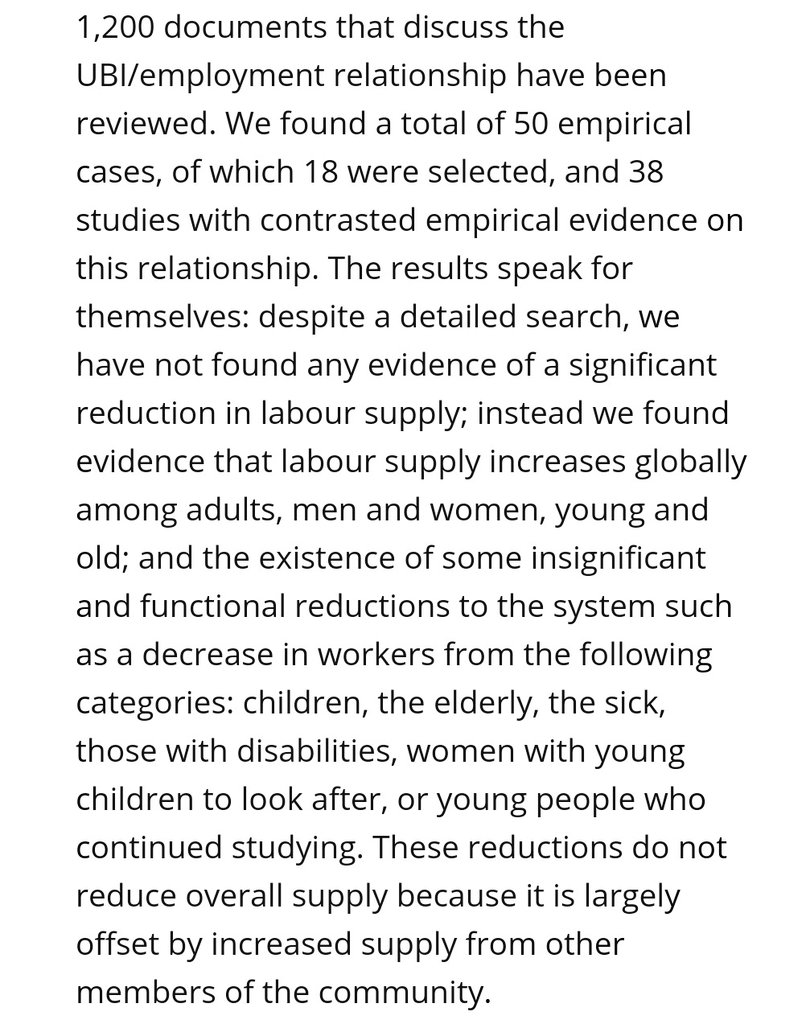
Because of an ongoing #UBI experiment that started before the pandemic, we now have evidence of what impact UBI would have had if already in place elsewhere. We'd be seeing less food insecurity, less depression, and we would have more hospital capacity.🏥
econweb.ucsd.edu/~pniehaus/pape…

econweb.ucsd.edu/~pniehaus/pape…
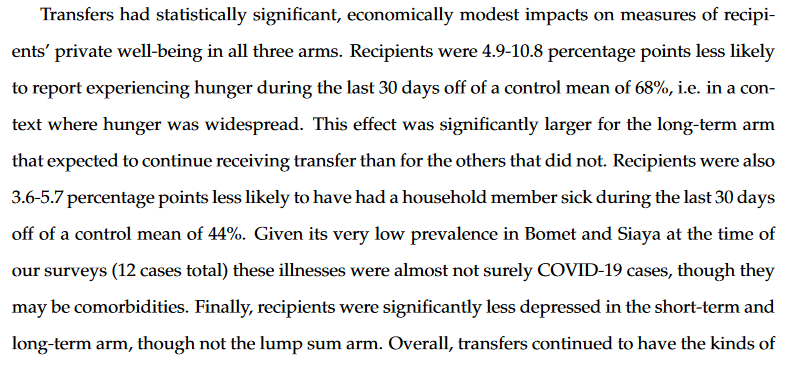
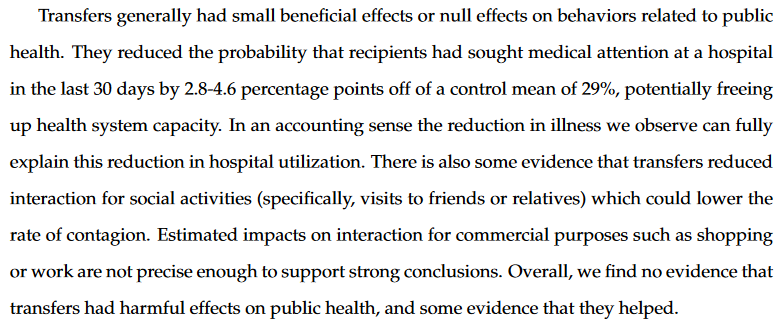
A 2018-19 experiment in Vancouver, BC provided $7500 unconditional cash to 50 homeless people. As a result they spent less time in shelters, saving the shelter system $8100 per person. Drug and alcohol use also went down 39%, plus food security improved.

https://twitter.com/scottsantens/status/1313941108628520961
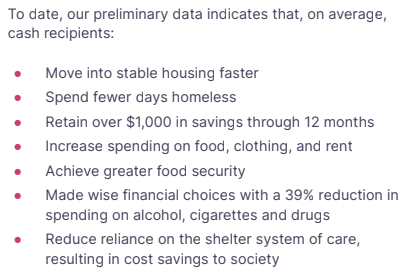
A 2018 study of cash giving in Rwanda found that households that got cash instead of standard aid saved 60% more, consumed 32% more, and expanded productive assets by 76% more. Diets improved, and so did children’s height, weight, and chances of survival.
bostonglobe.com/2020/10/17/opi…



bostonglobe.com/2020/10/17/opi…

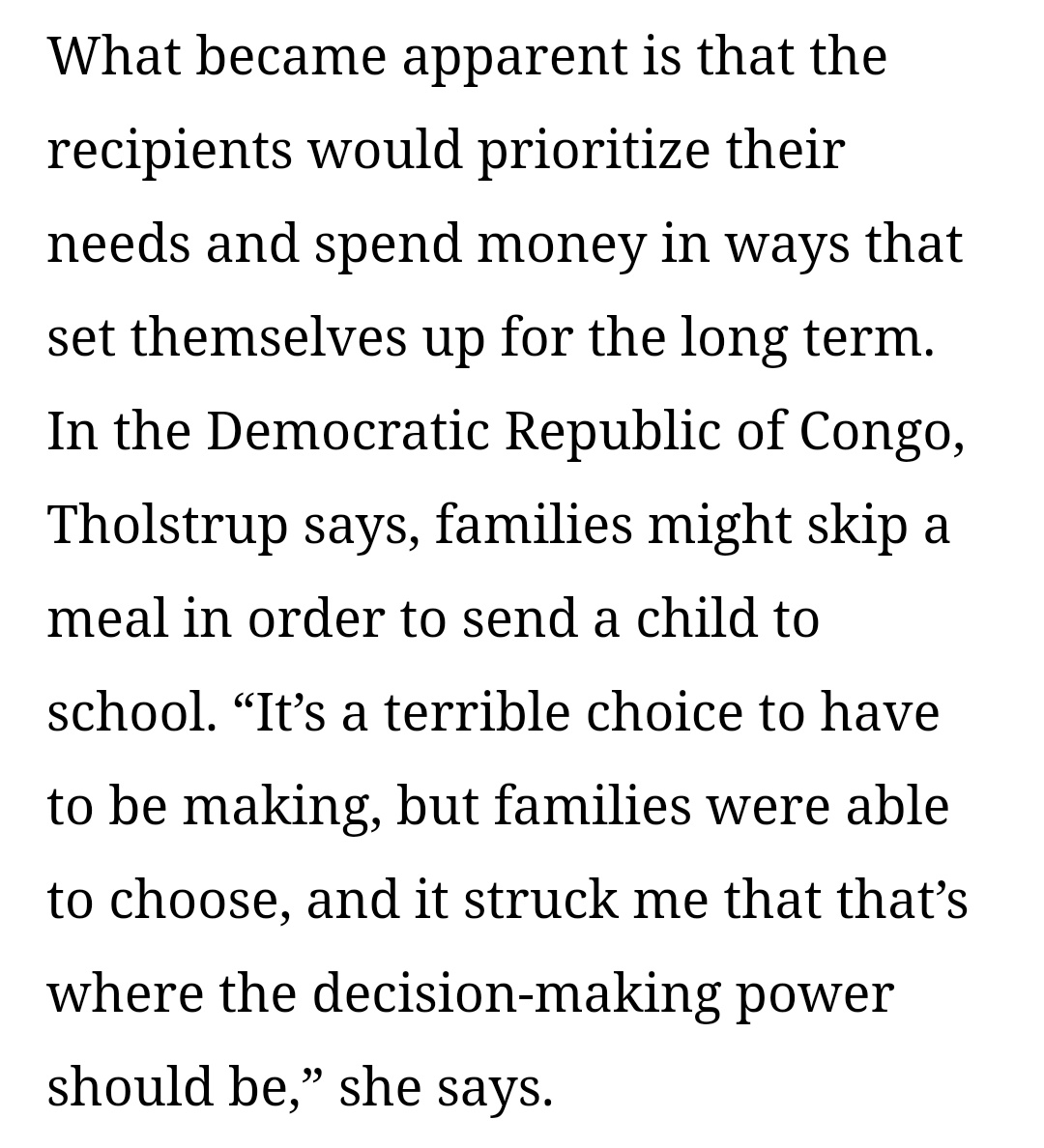
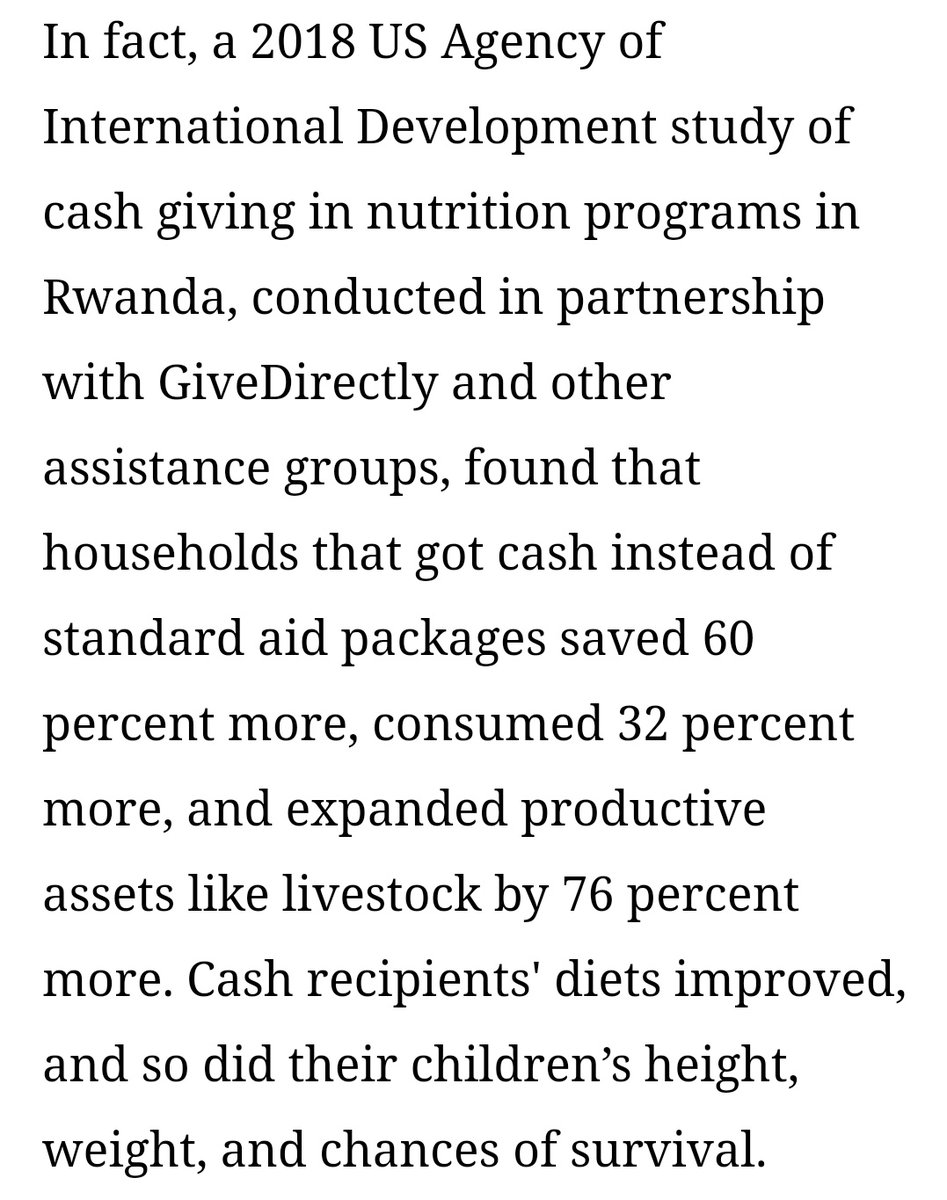
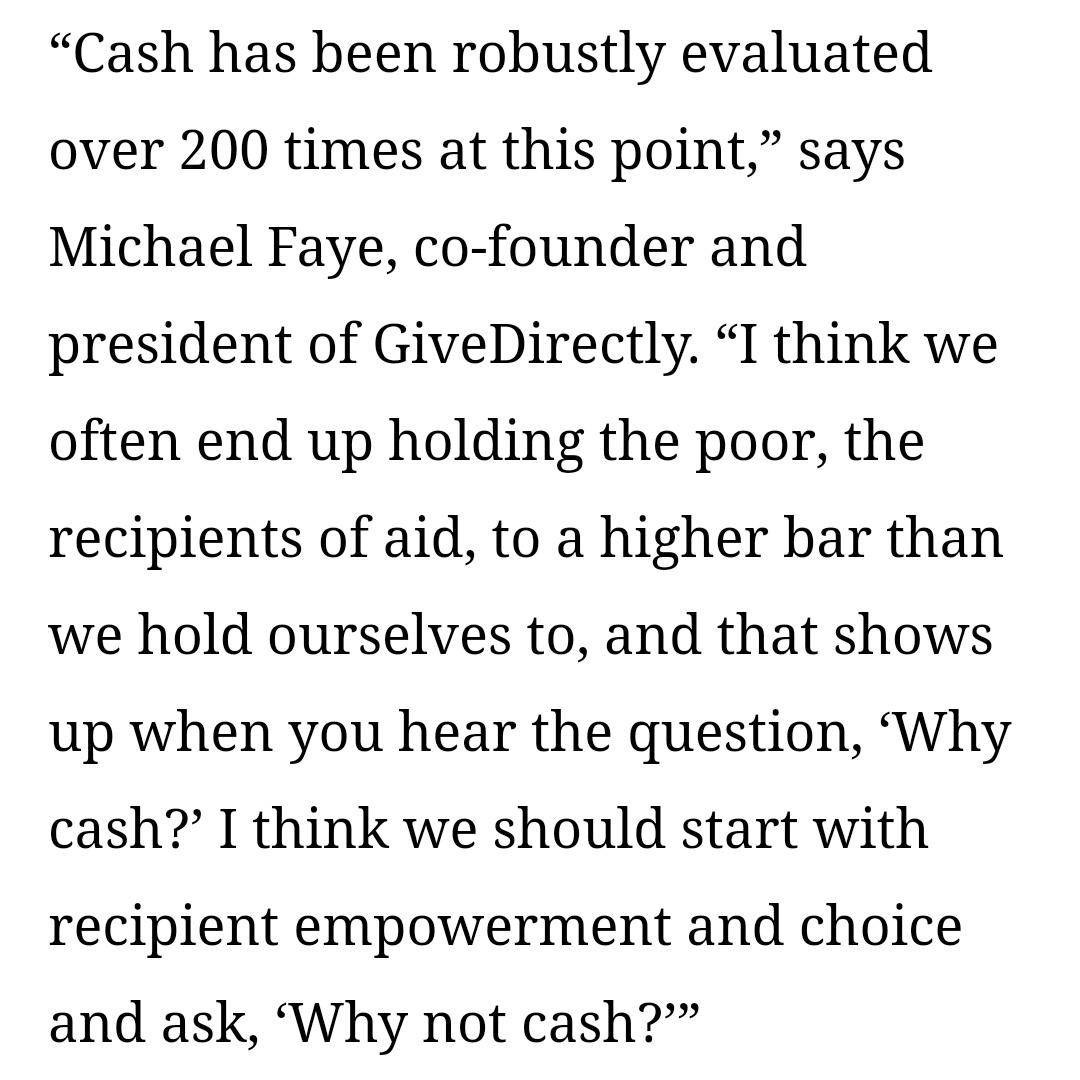
New research into an ongoing quasi-experiment of #UBI as a result of casino dividends in North Carolina shows it has increased self-reported lifespan for men in the bottom 25% by 15 years, meaning that they're less likely to act as if they will die young.
pubmed.ncbi.nlm.nih.gov/32432936/

pubmed.ncbi.nlm.nih.gov/32432936/
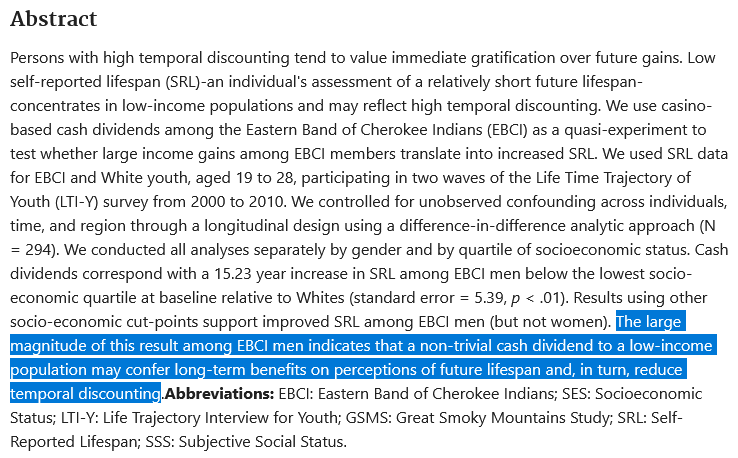
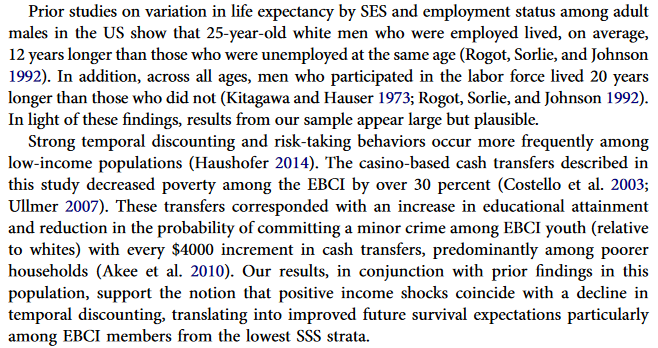
• • •
Missing some Tweet in this thread? You can try to
force a refresh













